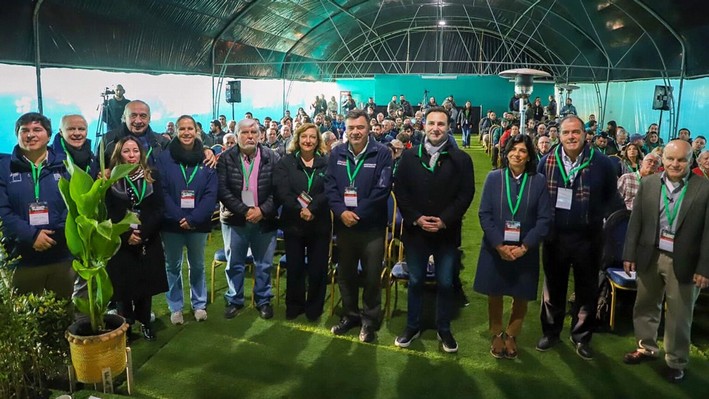"The crisis in the sector is real, but Chile remains a global benchmark"
Rodrigo O'Ryan, new president of Corma. The founder and former president of the Chilean Biomass Association previewed the main guidelines he will pursue as head of the forestry association.
For the first time, the Chilean Wood Corporation (Corma) will be led by a president from the biomass sector, Rodrigo O'Ryan, who takes over from Juan José Ugarte amid multiple challenges for the industry. These include the smallest planted area since 2012, forest fires, timber theft, declining international rankings, and setbacks compared to regional competitors.
“The crisis is real, and Chile is progressively reducing its plantations, but it remains a global benchmark in forestry,” says the new leader of the forestry association in his first interview.
According to the latest data from the Forestry Institute, the sector—once a pillar of the national economy—has lost 48,000 jobs, and its share of the national GDP is the lowest on record, below 2%. Over the past 10 years, more than 320,000 hectares of plantations have been destroyed, and major companies like Arauco and CMPC have announced historic investments in other countries, such as Brazil.
“We must grow again, where protecting what we have, urgently recovering what was lost, and expanding the planted area is the starting point,” says the hydraulic industrial engineer from PUC, who attributes the sector’s crisis partly to mega-fires and the lack of incentives and instruments to facilitate plantation financing.
What will your strategy be to strengthen Chile’s forestry sector?
- First, we need to address security issues: fires, theft, land invasions, and attacks that have particularly impacted SMEs. We must shift the perception of the sector and urgently advance a promotion policy focused on small landowners and timber SMEs to create new and better forests. We shouldn’t just consider plantations; we must also progress in the sustainable management of native forests because without forests, there is no timber, and without timber, no dream or change can be realized.
- What measures should be taken from both the public and private sectors?
- There’s a cross-cutting aspect crucial to addressing all these issues: strengthening the sector’s institutional framework. In this sense, the creation of the National Forestry Service (Sernafor) is a minimal and unavoidable necessity. This project must be designed and executed with a strategic, long-term vision, aligned with the climate, economic, and social challenges the country faces. Another concrete issue is fire prevention.
- What is the sector’s main challenge regarding climate change?
- Highlighting the role of trees in CO2 capture so society understands their immense value, not only as natural carbon sinks but also as a renewable source that can replace materials and products from polluting and non-renewable sources.
"Do you have any goals already? A sense of what your signature will be?"
- Our objective will be to position the sector as a strategic ally in addressing local and global challenges, such as decarbonization and the development of a green economy. We want Chileans to recognize and value everything the sector provides: forests, industries, bioproducts, biomaterials, bioenergy, biodiversity, climate change mitigation and action, and economic and social development. We aim to place the sector at the heart of people’s lives.
Source: subscription edition ofDiario Financiero















